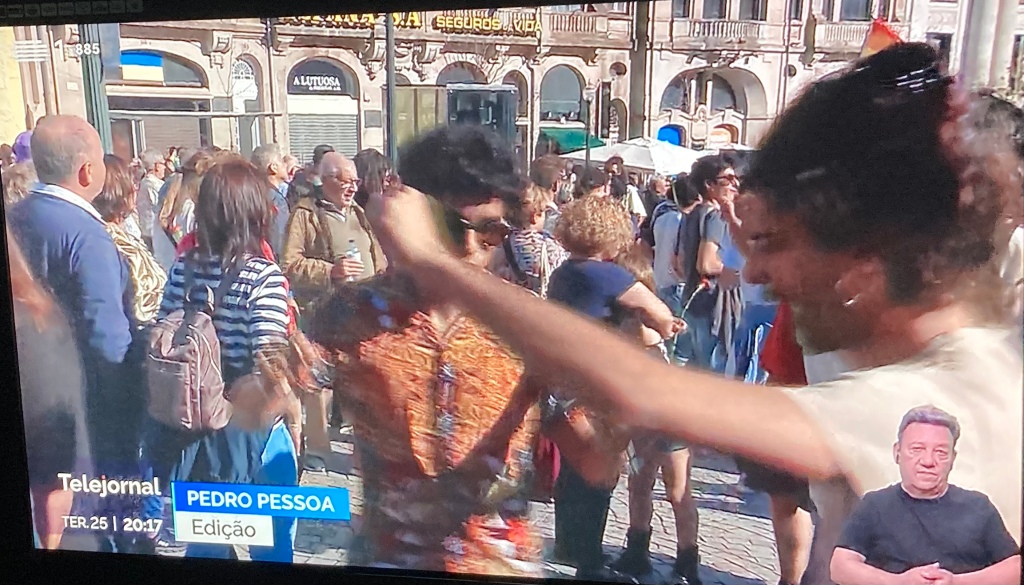
Next week Portuguese people throughout the country will celebrate the fiftieth anniversary of the Carnation Revolution. The bloodless event freed this small nation and allowed it to move forward with the rest of Europe.
Portugal endured more than 40 years of a brutally repressive regime which began in 1932 and ended in 1974. During the “Estado Novo” which was created by Prime Minister Antonio _de_Oliveira_Salazar , there was strict censorship of the press, books, music and arts. People lived in fear of being reported to the secret police, the PIDE (Policia International e de Defesa do Estado). Thousands were arrested, tortured and imprisoned during those years.
Women unable to open their own mail
Conditions for women under the dictatorship sound similar to present day Afghanistan under the Taliban. The teacher at the Portuguese classes I have attended told us that during that period women were not allowed to travel, work outside the home or open their own mail without their husband’s permission. Groups of people were not allowed to gather together in public. Coca Cola was forbidden because Salazar believed it might threaten Portugal’s wine industry.
Colonial Wars
Salazar was a staunch supporter of Portugal’s colonies; Angola, Mozambique, Guinea Bissau, in Africa, Goa in India and Macau in China. In the early 1960s Portugal sent troops to quell independent movements in the African colonies. These colonial wars were very costly and unpopular. Many Portuguese fled their home country to go work in France so they didn’t have to participate in those conflicts. (When I moved to Portugal in 2019, I quickly found that many older Portuguese speak fluent French from their years there.)
Salazar suffered a debilitating stroke in 1968, was replaced as prime minister by Marcelo Caetano, and died in 1970. Meanwhile, many of the lower ranking officers serving in Africa began planning to overthrow the dictatorship. The Portuguese Communist Party (PCP) was also active in organizing opposition.
Popular Song Gave the Signal
On April 25, a song played on the radio, “Grandola Vila Morena”, was the signal for the armed forces, with widespread popular support, to overthrow the regime. The coup gained its name because people in the streets handed red carnations to the soldiers who put the flowers in their gun barrels or on their uniforms. Within a few hours Caetano had resigned and the Estado Novo came to an end with hardly a shot fired.
Soon after the overthrow of the regime, the former colonial countries in Africa began their own struggles to complete the transition to independence. Back in Portugal a major symbol of the change was the renaming of the iconic bridge across the river Tejo in Lisbon from the Salazar Bridge to the 25 April Bridge.

Follow my blog to learn more about daily life in Portugal. Check out my website RosalieRayburn.com to read all about my Digger Doyle mystery novels.
